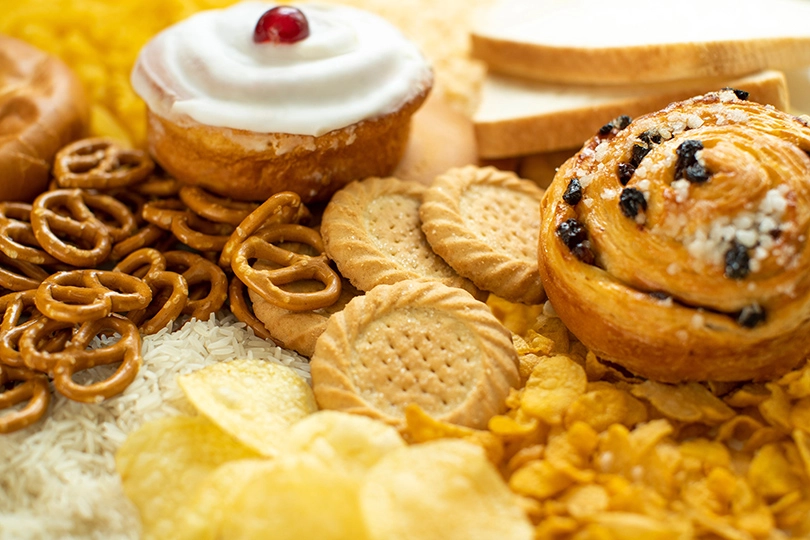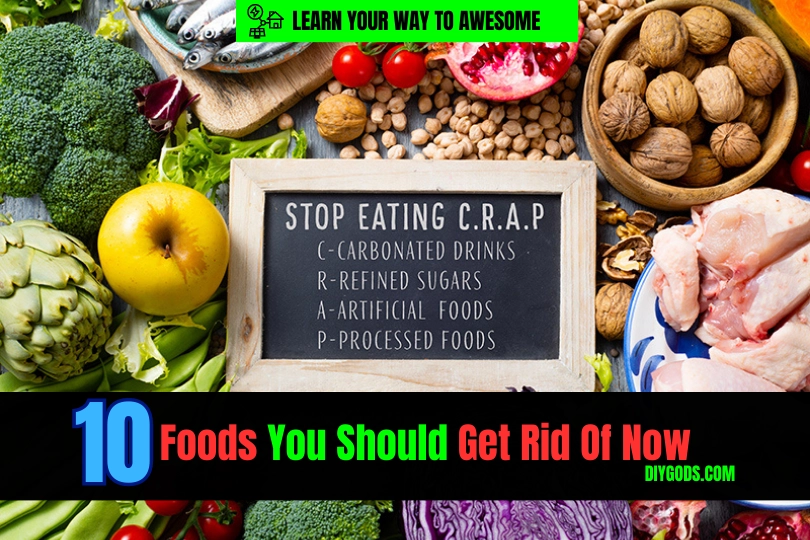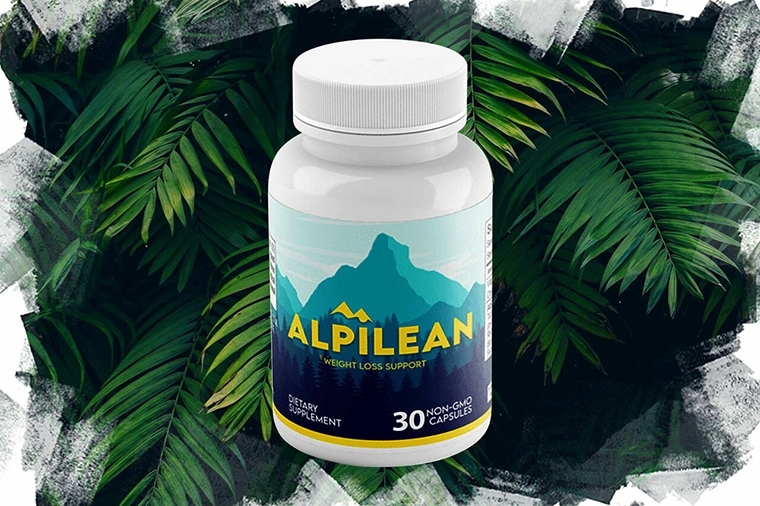Maintaining a healthy diet is essential for overall well-being. While food choices can be subjective, certain foods are widely recognized as detrimental to health due to their negative impact on weight, heart health, and overall well-being. In this article, we will explore the top 10 foods that you should consider eliminating or reducing from your diet for a healthier lifestyle. Keep in mind that individual dietary needs may vary, and it's always advisable to consult with a healthcare professional or registered dietitian before making significant changes to your diet.

1. Processed Meats: Processed meats, including sausages, hot dogs, bacon, and deli meats, are a staple in many diets. However, these meats are often high in sodium, preservatives, and unhealthy additives. Regular consumption of processed meats has been linked to an increased risk of heart disease, certain cancers, and other health issues. To improve your diet, opt for lean, unprocessed sources of protein like chicken, fish, and legumes.
2. Sugary Beverages: Sodas, energy drinks, and fruit juices with added sugars are popular thirst-quenchers but provide little to no nutritional value. These sugary beverages contribute to weight gain, tooth decay, and an increased risk of chronic diseases such as diabetes. Replace sugary drinks with water, herbal tea, or homemade fruit-infused water for a refreshing and healthier alternative.
3. Artificial Sweeteners: Artificial sweeteners like aspartame and sucralose are commonly used as low-calorie alternatives to sugar. However, studies have raised concerns about their potential health risks, including potential effects on appetite regulation and gut health. Instead of relying on artificial sweeteners, consider using natural sweeteners like stevia or consuming moderate amounts of natural sugars found in fruits.
4. Trans Fats: Trans fats are artificially created fats found in many fried and processed foods, including certain margarines and packaged snacks. These fats raise bad cholesterol levels (LDL) and lower good cholesterol levels (HDL), significantly increasing the risk of heart disease. Read food labels carefully and avoid products containing “partially hydrogenated oils” to minimize your intake of trans fats.

5. Highly Processed Snacks: Snack foods like chips, crackers, and cookies are convenient and tempting, but they are often highly processed and loaded with unhealthy ingredients. These snacks tend to be high in refined grains, unhealthy fats, and excessive sodium. Instead of reaching for processed snacks, choose healthier alternatives like air-popped popcorn, fresh fruit, or homemade energy balls made with natural ingredients.
6. High-Fructose Corn Syrup: High-fructose corn syrup (HFCS) is a common sweetener found in numerous processed foods, sodas, and sweetened beverages. Its excessive consumption has been linked to obesity, type 2 diabetes, and other health issues. Be mindful of food labels and choose products that don't contain HFCS or opt for whole foods and naturally sweetened options.
7. Artificial Food Colorings: Artificial food colorings are widely used in processed foods, candies, snacks, and drinks to enhance their appearance. However, these artificial colorings have been associated with hyperactivity in children and may have potential health risks. When possible, choose foods without artificial colorings or opt for natural food dyes derived from fruits and vegetables.

8. Fast Food: Fast food is notorious for its high levels of unhealthy fats, sodium, and calories, coupled with low nutritional value. Regular consumption of fast food can contribute to weight gain, high blood pressure, and an increased risk of chronic diseases. To improve your diet, limit your intake of fast food and opt for home-cooked meals made with fresh ingredients.
9. Excessive Added Salt: Consuming excessive amounts of added salt, commonly found in processed and packaged foods, can lead to hypertension and an increased risk of heart disease. Be mindful of your salt intake and choose fresh, whole foods prepared with herbs, spices, and natural flavors instead of relying on heavily salted processed foods.
10. Refined Grains: Foods made with refined grains, such as white bread, pasta, and white rice, have gone through extensive processing, stripping them of essential nutrients and fiber. These refined grains can cause rapid spikes in blood sugar levels and provide less satiety compared to whole grains. Opt for whole grain alternatives like whole wheat bread, brown rice, and whole grain pasta to increase your fiber intake and support better overall health.
By reducing or eliminating these BAD FOODS from your diet, you can create a healthier and more balanced eating plan.
Remember, everyone's dietary needs are unique, and it's essential to consult with a healthcare professional or registered dietitian to develop a personalized nutrition plan that suits your specific needs. Making informed food choices and opting for whole, unprocessed foods will contribute to improved overall well-being and long-term health.










